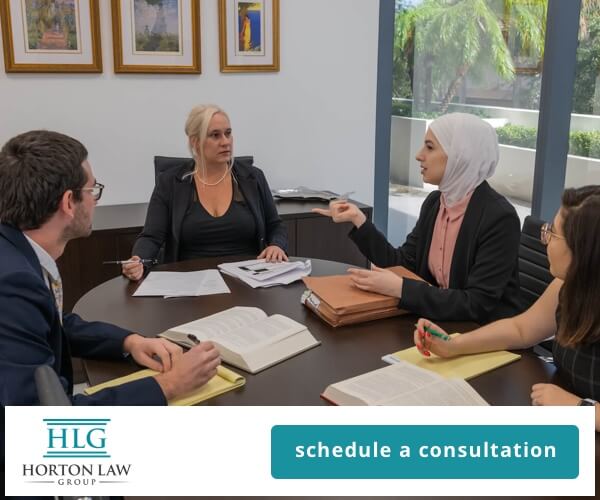YOU CANNOT PREDICT IT BUT YOU CAN PREPARE FOR IT!
What does Estate Planning Mean?
Estate planning basics are easy to understand if they are explained properly. Estate Planning is defined as:
The process of anticipating and arranging for the disposal of an estate during your life. Estate planning typically attempts to eliminate uncertainties over the administration of a probate and maximize the value of the estate by reducing taxes and other expenses
A Properly Prepared Plan Includes:
- Making a plan for what will happen to your assets after your death
- Easing the pain of your passing for your loved ones as they don’t have to guess what you would have wanted as they can make decisions based upon your instructions
- Sparing your loved ones from courtroom proceedings or unnecessarily taxes
- Providing instructions for passing your values (religion, education, hard work, etc.) in addition to your valuables.
- Including instructions for your care if you become disabled before you die.
- Naming a guardian and an inheritance manager for minor children.
- Providing for family members with special needs without disrupting government benefits.
- Providing for loved ones who might be irresponsible with money or who may need future protection from creditors or divorce.
- Including life insurance to provide for your family at your death, disability income insurance to replace your income if you cannot work due to illness or injury, and long-term care insurance to help pay for your care in case of an extended illness or injury.
- Providing for the continuation, transfer of ownership or continuation of your business at your retirement, disability, or death. Minimization taxes, court costs, and unnecessary legal fees.
An Estate Plan Consists of “THE CORE 4” Documents, at a minimum:
- Living Will or Health Care Surrogate – A medical power of attorney specifically relates to health care decisions.
- Financial Power of Attorney – a legal document that allows you to designate an agent to make your financial decisions for you if you become incapacitated. You agent will pay your bills, make bank transfers, manage your business and interact with official agencies on your behalf.
- A Will – a legal document that provides instructions for your Executor to follow. You can leave instructions for the distribution of your estate, guardianship appointment for your minor children, setting up Trust Accounts for Minor Children or others who are financially dependent on you and/or who have special needs, you can make burial or cremation arrangements.
- Revocable Trust – Unlike a will, a trust doesn’t have to die with you. Assets can stay in your trust, managed by the trustee you selected, until your beneficiaries reach the age you want them to inherit. Your trust can continue longer to provide for a loved one with special needs, or to protect the assets from beneficiaries’ creditors, spouses, and irresponsible spending. A Trust, if properly set up, avoids the need for probate. Your assets and distribution wishes remain Private.
There are various other documents that are involved with estate planning, but the “CORE 4” are the crux of your estate plan – thus, it is critical you have those 4 documents in place.
You Have the “CORE 4” – Now What?
A mediocre estate planning attorney will meet with a client, create and implement an estate plan and send the client on their way.
An experienced and exceptional estate planning attorney will meet with a client, create and implement an estate plan, fund the client’s Trust, prepare/execute/record all real property deeds and continue to work with the client on an annual basis to ensure the client’s estate plans are up to date as in accordance with the client’s wishes.
My Services also include:
- Setting up trust accounts in the names of the beneficiaries you named in the will. Think about whether you want to place your assets in trust accounts before your death, which will limit the amount beneficiaries will pay in taxes. Placing the assets in trust also allows your heirs to skip Probate court.
- Funding your Revocable Trust
- Changing Title and Re-Recording Deeds for Real Property
- Naming beneficiaries for assets like 401(k)s, IRAs and life insurance policies. Special consideration is needed for these kinds of assets, because they’re generally subject to ordinary income tax, rather than the estate tax paid on cash or other inherited assets. If you want to determine how much each of your heirs will receive— for instance, if you’re trying to divide your assets equally among your children—remember that a beneficiary on a $50,000 401(k) won’t receive the same amount as a beneficiary on a $50,000 savings account. Generally you are asked to name a beneficiary when you first set up a 401(k), IRA or life insurance policy. Check who your beneficiaries are now, and periodically review them as a part of your estate planning.
- Sending the client semi-annual updates in the law and reminders about updating estate plans if life circumstances change.
IF YOU ARE STILL NOT CONVINCED YOU NEED A PLAN…
- If you don’t have a plan, the State of Florida has one for you, but you probably won’t like it.
- Estate planning Is Rated “E” for EVERYONE – we CANNOT predict how long we will live. Illness and accidents happen to people of all ages.
- The Best Time to Plan Your Estate is Now. None of us really likes to think about our own mortality or the possibility of being unable to make decisions for ourselves. This is exactly why so many families are caught off-guard and unprepared when incapacity or death does strike. Don’t wait.
“By failing to prepare, you are preparing to fail.” ― Benjamin Franklin
IN CONCLUSION: ESTATE PLANNING IS NOT A DO-IT-YOURSELF-TASK
It is important to work with someone who you know and trust. Contact the Horton Law Group, P.A.to consult with an experienced estate planning attorney.
This Article was written by Attorney Sommer C. Horton of the Horton Law Group. Ms. Horton can be reached at (561) 299-0018.







